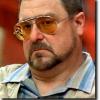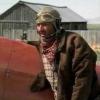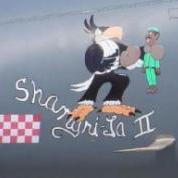This is really not true. I don't know if you are at Kandahar or Bagram, but if you're at Bagram send me a PM and we'll sit down for a few minutes and talk about it. You have a decent grasp on the confounding variable of power in the Indy08 situation (although it is the spin it would have contributed to, not the stall itself)...but there was, as has been non-sensically addressed here, a number of others that made the chain that eventually couldn't be broken.
It is not acceptable for either squadron to have the subject be taboo and equally unacceptable to even make you feel like it is.
As with any other control inputs, it is the performance of the aircraft that is what's important. That mantra is applicable, however it takes a little more than just the blind application of mantras or even procedures to be a good aviator. While the application of boldface (or critical action procedures, if you will) are important to apply in a timely fashion, they still should not be done without critical thought. Doing things without thinking first gets you killed, in the MC-12 and every other aircraft ever made.
We have gone out and induced approach to stalls in the mission orbit climb profile and it is very easy (and disturbingly sad) to recover from. However, if you let the autopilot trim the climb, "relaxing" will do little to nothing for you. Rolling wings level will always help, as it will direct the lift where you really need it...while this is not necessary for recovery, it should always be done when available. The power at a low airspeed is needed to not lose altitude, but must be applied very judiciously and with the nose down trim...no rush, there is plenty of time...IF YOU PUT THE NOSE DOWN.
I've seen a number of similar situations where the lack of auto-throttles have led to rapidly decaying airspeed, with the autopilot ferociously trimming nose up. Put the nose back to where you need it to be and the situation begins to resolve itself. Control and performance...it very much is airmanship 101.
We should learn everything we can each time. I don't believe one should focus solely on one thing or the other. Some in the MC-12 community has learn a great deal from this tragedy, while unfortunately other have not. However, I would argue those people can't be helped until they help themselves first.
This was never once said to me during IQT. Had I not asked, I'm not sure anything about the flight guidance panel would have been said. However, the flip attitude of "it's airmanship plain and simple" is a little rough. Maybe that's just due to my current position, but I think even you (with an amazing 600 hours in type) could learn at least a thing or two.
Bendy










